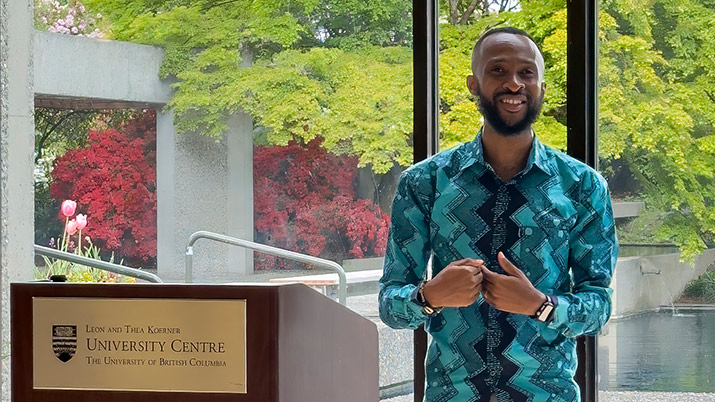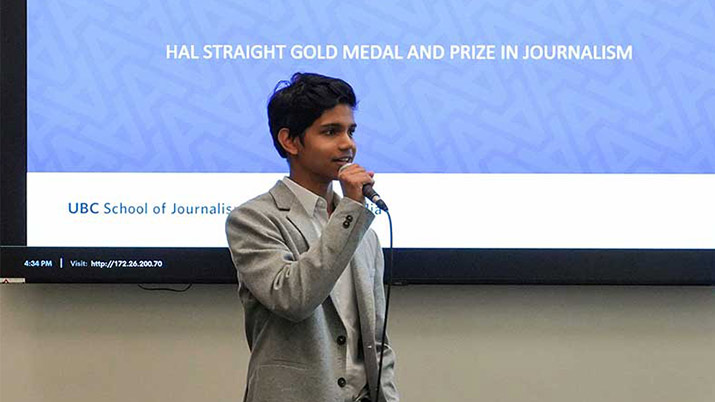UBC journalism researchers have received a federal grant to further their work on the digital harassment of journalists.
The ongoing project, Shooting the Messenger: Credibility Attacks on Journalists, investigates the prevalence and nature of digital harassment and discrediting campaigns against journalists.
The grant of $68,640 from Heritage Canada is part of the government’s Digital Citizen Contribution Program (DCCP) which supports research that counter disinformation and harassment in democratic digital spaces.
The project is part of the work of the Global Reporting Centre (GRC), based at the UBC School of Journalism, Writing, and Media. The centre provides an international platform through which journalists can collaborate on under-reported global issues.
“We need to understand what is really happening with these disinformation attacks”
Shooting the Messenger is led by Dr. Chris Tenove, under the guidance of Principal Investigator Peter Klein, UBC Journalism professor, and executive director and founder of the GRC. Tenove is a Research Associate and Instructor at the School of Public Policy and Global Affairs, and the Assistant Director of the Centre for the Study of Democratic Institutions (CSDI) at UBC.
Along with Klein and Tenove, the team is composed of co-investigator Dr. Ahmed Al-Raw, Director of Simon Fraser University’s Disinformation Project. The research assistants from UBC and SFU working on the project are Juan Merchan, Gustavo Villela, Manimugdha Sharma and Leticia Loureira, with staff support from Andrew Munroe, Christine Brandt, and Rithika Shenoy.
“We need to understand what is really happening with these disinformation attacks — where they are coming from, what kinds of stories draw these attacks, what forms of communication are weaponized to attack journalists,” said Klein. “Only then can we start to explore how to address this disturbing trend.”
International focus on digital harassment
Shooting the Messenger aims to develop an enriched understanding of the source, scope, and impact of reputational attacks via digital media and shed light on the psychological harms of digital harassment in hopes to raise awareness and inform public policy.
Its most recent milestone was conducting an international survey, in collaboration with the Committee to Protect Journalists (CPJ). The online survey was distributed in five languages – English, French, Spanish, Hindi, Portuguese, and Arabic. Results will be published later this year.
The project has also looked at social media, with a pilot investigation on Moroccan journalists in collaboration with the Atlantic Council’s Digital Forensic Research Lab (DFRLab), published in November 2022. With the new funding, the team hopes to continue pursuing similar additional projects that will help paint a clearer picture of the digital threats to journalists.
Since its initial funding of $24,959 from Social Sciences and Humanities Research Council of Canada in 2020, the team has raised just under $120,000 to support its work. It has received grants from PEN Canada, Mitacs, and the Jonathan Logan Family Foundation.
In addition to financial contributions, the project has received in-kind support from the CPJ and PEN Canada.


